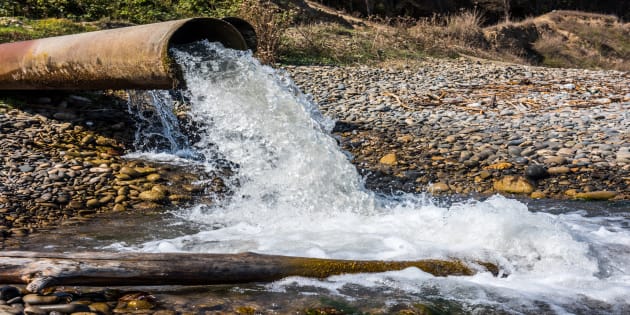36 Percent Of South Africa's Water Is Lost Unnecessarily
Published on by Robert Brears, Founder of Our Future Water, Young Water Leaders, Mitidaption & Author (Springer Nature, Wiley) in Government
More than a third of South Africa's drinkable water is being lost unnecessarily, and there's very little that can be done about it in the short term.
***By Garreth Van Niekerk***
A professor heading Urban Water Management at The University of Cape Town's department of civil engineering told HuffPost that major water theft is one of the largest contributors to the loss of what is technically called "unaccountable water" – along with a crumbling waterpipe infrastructure countrywide.
GETTY IMAGES/ISTOCKPHOTO
Professor Neil Armitage, who is also the deputy director of the Future Water research institute, explained that unaccountable water is currently running at 36 percent in the country, and approximately 15 percent in Cape Town specifically.
"The way the water system works is that the city will buy water, then sell it, and the discrepancy between what is bought and what is sold, is what is called 'unaccountable water'. Much of it is via leaking pipes, also via municipal services like watering parks, but most of it is via theft.
"Recently iEthekwini did a whole overhaul of the water system to account for old and cracked pipes. They did that, but discovered that as much as a problem as cracked pipes were, stolen water was the same – if not more of an issue. Theft in general is a major problem in SA, as you are well aware. 36 percent lost, and this becomes an even bigger problem in SA where water maintenance is not being carried out properly."
Most pipe material, Armitage explains, has a lifespan of 40 years, "but there are many pipes in South Africa that are over 100 years old. So the cities are under pressure to upgrade, because it's hard to justify putting pipes in rich areas as opposed to areas where there are no pipes at all. Cape Town, for example, is by far the best performing city in this regard, where unaccountable water sits at 15 percent - putting it in the top-performing cities around the world."
The real problem lies in the leafy suburbs of Cape Town, he says, who use 65 percent of the city's water.
"What must we do to those stealing water? Threaten people with jail, if they are trying to steal water because they don't have any? The real issue at this moment is to control high-end users – corporate users and high net-worth individuals with an attitude problem."
Armitage also says that the rumour that dry water pipes explode is untrue, but that the reality is even more grim.
"If you depressurise the water system, you run the risk of polluted groundwater getting into the system. Which means that when you repressurise, you will have severely polluted groundwater [in the pipes], which may contain actual sewerage."
Attached link
http://www.huffingtonpost.co.za/2018/01/29/36-percent-of-south-africas-water-is-lost-unnecessarily_a_23346280/Media
Taxonomy
- Leakage Detection
- Water Losses
- Leakage
- Leakage Reduction
- Water Loss Control
- leakage
- Water Demand Management and Loss Control
